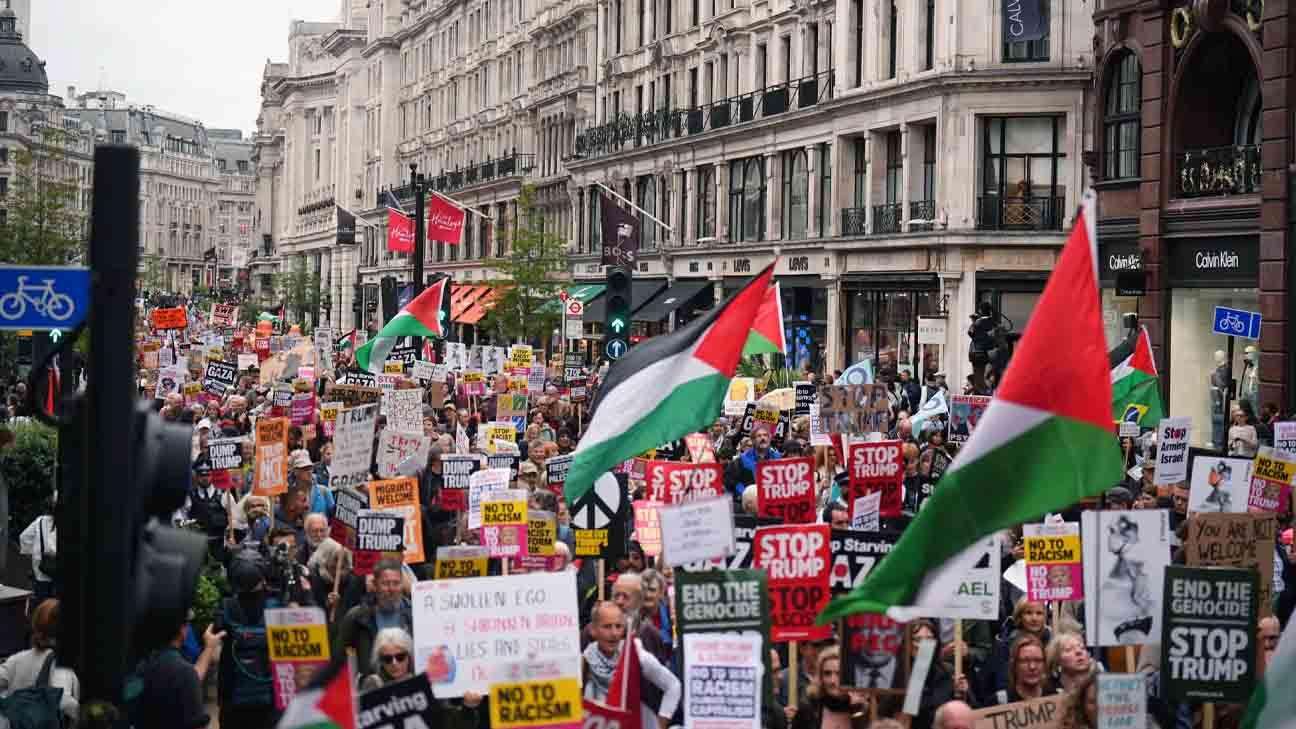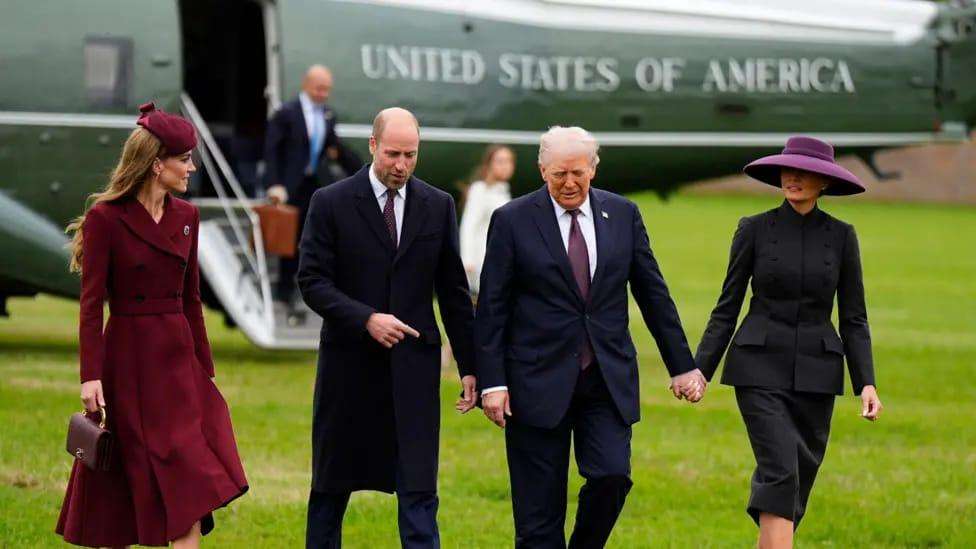Thousands of protesters converged on the streets of central London, providing a stark counterpoint to the royal pomp and circumstance surrounding U.S. President Donald Trump's second state visit to the UK. While King Charles III and senior royals hosted the American president at Windsor Castle, demonstrators expressed a wide range of grievances, reflecting the deep-seated unpopularity of the U.S. leader among a significant portion of the British public.
According to a recent YouGov poll, over half of Britons believe the Trump presidency has been detrimental to the UK. The same survey found that 45% of the public felt the government was wrong to extend the invitation for a second state visit, compared to just 30% who thought it was the right decision. This sentiment was palpable at the protest, with many participants holding placards and banners that went beyond simple anti-Trump slogans to address broader issues they associate with his political style.
Protesters cited a range of concerns, including Trump’s rhetoric on immigration, his policies on climate change and abortion rights, and his perceived "authoritarianism." The protest saw diverse groups unite, from climate activists and anti-racism organizations to pro-Palestinian and anti-monarchy groups. One art teacher from south London, who painted a placard featuring portraits of both Trump and UK Prime Minister Keir Starmer, expressed her disappointment with the Labour government for inviting the U.S. president. Similarly, a protester from Dorset highlighted her fears about the Trump administration's rollback of women's rights.
A key point of contention for many is the perceived "erosion of checks and balances" and the "centralisation of power" that they feel Trump represents. Graham Smith, a spokesperson for the anti-monarchy group Republic, drew a parallel between Trump and King Charles, stating that they are "two sides of the same coin: corrupt billionaires with a distaste for democracy."
While the sheer scale and intensity of the London protests are notable, anti-Trump demonstrations have occurred globally. Protests against him have taken place in various countries, including Canada, France, Germany, and Australia. In South Korea, his visit in 2025 was met with a large rally of more than 2,000 supporters, but also with protests against his far-right allies. The "Trump Baby" blimp, a symbol of the 2018 protests in London, has been replicated in other countries.
A Pew Research Center study conducted in June 2025 across 24 countries found that a median of 62% of adults have little or no confidence in President Trump. His lowest ratings were in Mexico (91% no confidence), Sweden (85%), and Germany (81%), while he had the highest confidence ratings in Nigeria (79% confidence) and Israel (69%). These numbers suggest that while the UK's opposition to Trump is significant, it is part of a broader, though not universal, international trend of negative public opinion toward the U.S. leader. The protest in London, therefore, is not an isolated event but a reflection of a global political climate where Trump's policies and persona face considerable resistance.








.svg)


